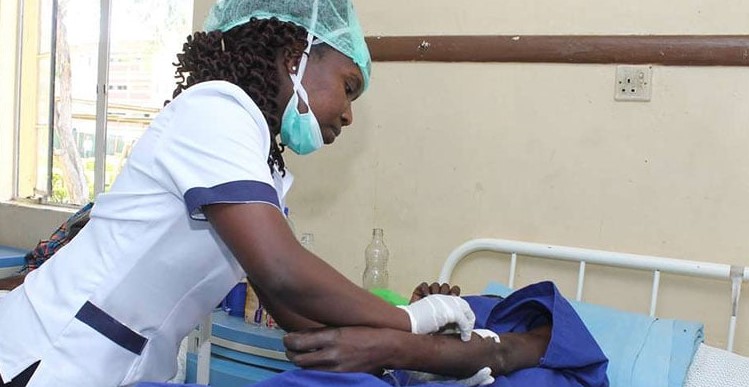Kilifi County residents seeking medication services at public facilities are at stake following an acute shortage of nurses whose establishment is less than 50 per cent of the optimum capacity.
Administrators in the County Health Department revealed that nurses across the county are getting overwhelmed by the huge amount of work leading to poor service delivery as patients wait desperately to be attended to.
The head of the Family Health Services department in Kilifi County, Jesca Deche, said the government strived to establish new health facilities but needed to employ more nurses to fill the demand.
Speaking during celebrations to wind up World Nurses Week, she noted that the county currently has around 160 facilities.
“You’d say we have many nurses but compared to the demand on the ground, I have said it earlier, we are operating way below average, way below 50 per cent,” she said.
Did you read this?
She said that due to the inadequate staffing in the health facilities, nurses are forced to multitask, work extra hours, and strain too much to deliver services satisfactorily.
Further, Deche explained that quality service delivery in health facilities is at risk, and it will greatly improve if efforts are put into employing new nurses in the county.
“Go to the health centers the same whereby doctors are not there with only clinical officers at the health centers who are also few. So much of the work is done by the nurses. If we could invest and have more nurses in this county it can be a game changer in health service delivery,” she said.
Further, she said that maternity services are the most affected in service delivery, where expectant mothers visit maternity wards in large numbers for free delivery services. Still, there are not enough nurses to handle them.
On his part, Kilifi County Coordinator in the Reproductive Health Department, Kenneth Miriti, stated that the lack of staff in public health facilities should be declared an emergency to save lives that might be lost due to poor service delivery.
Mr Miriti added that the government must take the responsibility to hire qualified and jobless nurses graduating every year in large numbers from MTCs in the country.
“It’s not because we lack qualified nurses in Kenya. Every year KMTC produces very many nurses but when you look at their absorption rate in employment, it is too low in both County and National government,” he said.
The Chairperson of the National Nurses Association of Kenya (NNAK) Kilifi branch Janet Rotich admitted that the problem has affected the provision of services and added that the salary delay has also worsened the situation.











